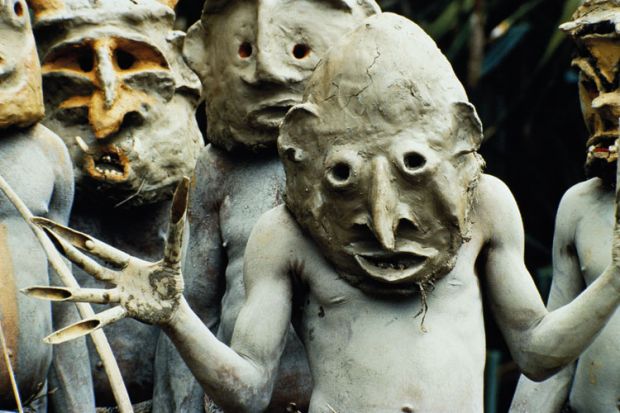Our Deputy Head of REF Strategy, Brian Bryan, has expressed “absolute delight” at the news that the high-powered research panels set up to detect “impact” in the 2014 research excellence framework appear to have had no difficulty whatsoever in discovering its existence and measuring its relative value.
Mr Bryan told our reporter Keith Ponting (30) that “it was now almost impossible to believe that there had been a time in the not too distant past when leading academics had regarded ‘impact’ as a dubious concept that either lacked all meaning or had quite different meanings for different disciplines or was even an ideological attempt to inhibit free thinking”.
But it now appeared that those who had served on impact panels had been easily able to dismiss all such conceptual and theoretical difficulties. Indeed, some had been so impressed by the extraordinarily clear-cut nature of impact that they were proposing to increase its weighting in the next REF from 20 per cent to 25 per cent.
Mr Bryan went on to compare the relative ease with which the impact panels had discovered impact with the success of the Society for Ghost Discovery in so decisively establishing the existence of supernatural beings.
No tribal loyalty
“I’ve nothing whatsoever against the Bushmen of the Kalahari or even Turnbull’s Ik, but do such people, however fascinating their ancient customs, really have much relevance to a modern, impactful university going forward?”
This was the demanding question posed by Janet Fluellen, our Director of Curriculum Development, as she announced the forthcoming closure of our Department of Anthropology.
The move, she said, had been greatly influenced by the AQA exam board’s decision to drop anthropology as an A-level subject.
Although Ms Fluellen admitted that she had no idea how the exam board had reached this decision, she took “considerable comfort” from the AQA’s principled website assertion that it behaved with “honesty and integrity” in all its activities and relationships and acted “ethically and fairly when dealing with our stakeholders”.
Her only regret, she admitted, was that a university like Poppleton could not close academic departments with the “commendable arbitrariness” with which the AQA apparently approached A-level subjects.
Warning!
Please note that the Economic and Social Research Council has recently advised all academic research staff against making any public reference to their research during the period of “political sensitivity” that will last from 30 March until “at least” 8 May. This restriction is, of course, necessarily imposed lest any such research have an impact.
Thought for the week
(contributed by Jennifer Doubleday, Head of Personal Development)
Any anthropologists who have been affected by the arbitrary closure of their department (see above) are invited to collect their early retirement pensions from the Personal Development office this coming Friday morning. Mark your applications “Potlatch”.
Register to continue
Why register?
- Registration is free and only takes a moment
- Once registered, you can read 3 articles a month
- Sign up for our newsletter
Subscribe
Or subscribe for unlimited access to:
- Unlimited access to news, views, insights & reviews
- Digital editions
- Digital access to THE’s university and college rankings analysis
Already registered or a current subscriber?

